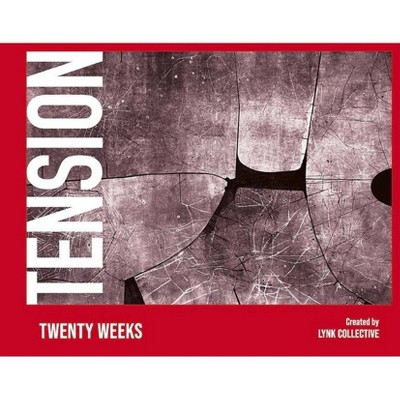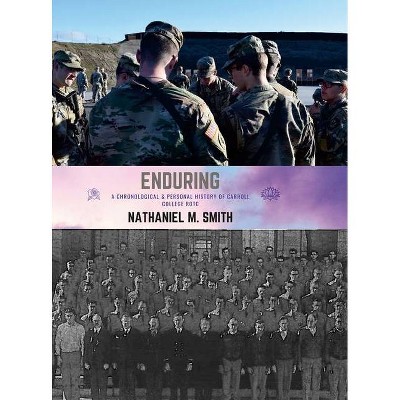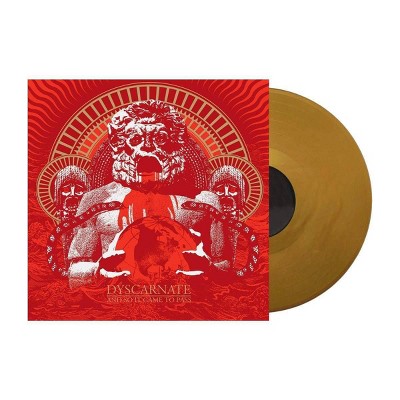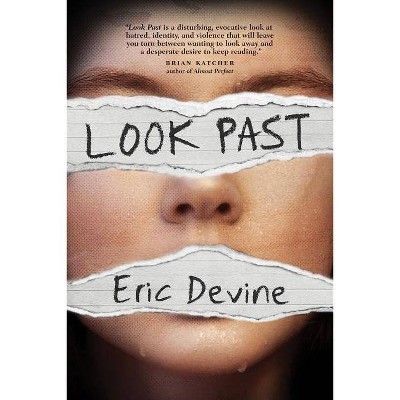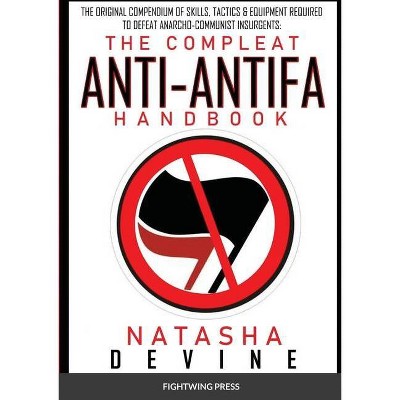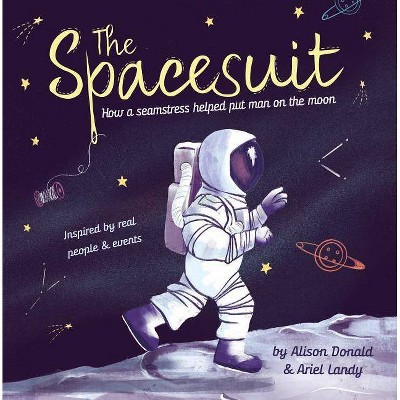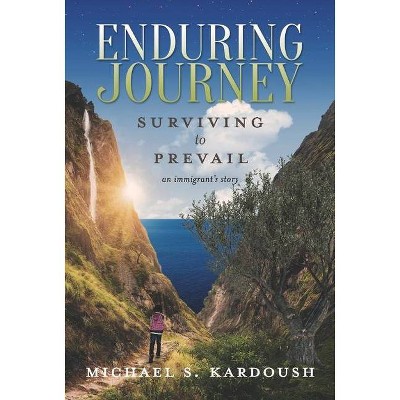The Enduring Tension - by Donald J Devine (Hardcover)
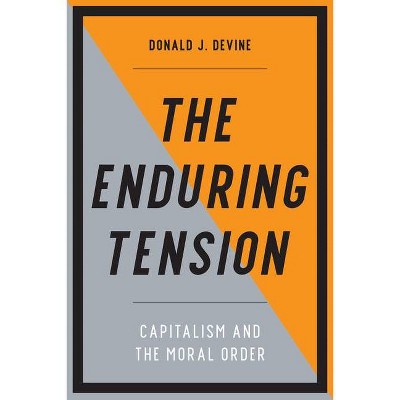
Similar Products
Products of same category from the store
AllProduct info
<p/><br></br><p><b> About the Book </b></p></br></br>"Western civilization fashioned a capitalism that created a worldwide cornucopia but produced few grateful beneficiaries. Indeed, the market's creative destruction and individualist autonomy have become a challenge to capitalism's legitimacy. Even a sensitive person like Pope Francis called capitalism's "limitless" freedom a "fundamental terrorism against all humanity." The sympathetic economic historian Joseph Schumpeter had identified capitalism's "crumbling walls" a half-century earlier and predicted approaching civilizational collapse. Capitalism only survives today in what Schumpeter's classic Capitalism, Socialism and Democracy called a "fettered" form, harnessed by bureaucratic regulations that impede productivity, compound the problems they were designed to fix, and dissolve the moral structure that underlay capitalist civilization's creativity and moral legitimacy. A response to these challenges must begin with capitalism's defining author Karl Marx accurately setting capitalism's roots in feudalism and the implications of that historical inheritance, predominantly what Walter Lippmann identified as Rousseau's "Christian heresy." That revolution converted heavenly perfection into impossible to fulfill demands on earth, culminating in what F.A. Hayek considered the "superstition" that science could rationalize markets to achieve social perfection. To unravel this capitalist enigma, we identify the historical roots of the confusion, review the alternative rationalized solutions, and provide a pluralist John Locke-inspired legitimizing-synthesis to fuse a freedom and tradition moral scaffolding sufficient to hold the walls and preserve the best of capitalist civilization"--<p/><br></br><p><b> Book Synopsis </b></p></br></br><p>Western civilization fashioned a capitalism that created a worldwide economic cornucopia and higher standards of living than any other system, yet its legitimacy is often questioned by its beneficiaries. Boston University Emeritus Professor Angelo M. Codevilla, proclaims Donald Devine's <i>The Enduring Tension</i> between <i>Capitalism and the Moral Order</i>, "the best answer to this question since Adam Smith's. Like Smith, Devine shows the mutually sustaining nature of morality and economic freedom, and provides a much-needed clearing away of the confusion with which recent authors have befogged this essential relationship." <p/>Devine begins with Karl Marx setting capitalism's roots in feudalism and the implications of that traditionalist inheritance, finally transformed by Rousseau's "Christian heresy," which turned the vision of heavenly perfection into an impossibly perfect ideal for earthly society. <p/>To unravel this capitalist enigma, Devine identifies the roots of the confusion, critiques the rationalized responses, and identifies the remedy--the revival of an historical Lockean pluralism able to fuse a moral scaffolding sufficient to hold the walls and preserve the best of capitalist civilization.</p><p/><br></br><p><b> Review Quotes </b></p></br></br><br><p>Why does history record prosperity for the mass of ordinary people only within Western civilization and in the context of free markets? Donald Devine's exploration of the enduring tension between capitalism and the moral order is the best answer to this question since Adam Smith's. Like Smith, Devine shows the mutually sustaining nature of morality and economic freedom, and provides a much needed clearing away of the confusion with which recent authors have befogged this essential relationship.--Angelo M. Codevilla, Professor Emeritus, Pardee School of Global Studies, Boston University <p/>In this profound and sweeping study, Donald Devine illuminates the foundations of our liberal order, takes its serious critics seriously, and answers them in their own terms--which he demonstrates are ultimately moral terms, in the deepest sense. This is an essential book for understanding the prospects of our politics.--Yuval Levin, American Enterprise Institute <p/>Too many defenses of the market economy focus on narrow economic considerations alone. To make a deep and compelling case requires an understanding not only of economics, but of broader issues in ethics, political science, history, and philosophy. Few are qualified to do this, but Donald Devine certainly is, as <i>The Enduring Tension</i> demonstrates. --Edward Feser, Professor of Philosophy, Pasadena City College <p/>Donald Devine provides an invaluable guide to the sometimes solid, sometimes dreamy ideas about economic and social life we will have to contend with if we want to build and sustain a humane world. Drawing from history, political philosophy, theology, and a practitioner's wisdom, he concludes that there can be no vibrant capitalism without a robust moral tradition. We must take his insights to heart and work to fortify that tradition.--Joshua Mitchell, Professor of Political Theory, Georgetown University <p/>In an era of new challenges, Donald Devine reveals the historical roots and the moral necessity of pluralism and capitalism. <i>The Enduring Tension</i> is an essential book for a dark time.--Samuel Goldman, Associate Professor of Political Science, George Washington University <p/> <i>The Enduring Tension</i> isn't just a book that makes the moral case for capitalism--it's a whole library in one volume. Donald Devine channels a lifetime of experience and scholarship into this indispensable work, where his erudition is matched only by his passion and eloquence.--Daniel McCarthy, Editor, <i>Modern Age</i> <p/>When capitalism's legitimacy faces an onslaught of naysaying, Donald Devine does the necessary work of reconciling human freedom, capitalism, and morality. Edmund Burke counseled us to stand on the shoulders of giants, and Devine is one of those sagacious giants.--Rachel Bovard, Policy Director, Conservative Partnership Institute</p><br><p/><br></br><p><b> About the Author </b></p></br></br><p>Donald J. Devine is Senior Scholar at the Fund for American Studies, an academic, columnist; lecturer, and author of nine previous books. Dr. Devine is the last of the dozen intellectuals once identified as the "leading lights" of the post war fusionist re-evaluation of conservative and libertarian thinking. For a quarter-century he was a professor of government at the University of Maryland and Bellevue University. He was a longtime advisor to Ronald Reagan and served as his Director of the U.S. Office of Personnel Management during his first presidential term.</p>
Price History
Cheapest price in the interval: 23.99 on October 22, 2021
Most expensive price in the interval: 23.99 on November 8, 2021
Price Archive shows prices from various stores, lets you see history and find the cheapest. There is no actual sale on the website. For all support, inquiry and suggestion messagescommunication@pricearchive.us
